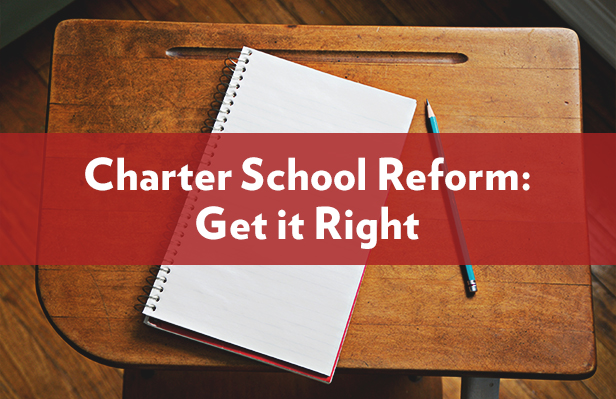Media

Charter Reform Nears the Goal-line
Charter school reform is advancing in Harrisburg. Long in the works, HB 97 (previously HB 530) is a sweeping bill that includes several important revisions to Pennsylvania’s charter school law. The legislation will be considered in the House Education Committee this week.
As we wrote in August, it is vital that Pennsylvania do right by its charter families.
HB 97 strengthens charter school accountability. The bill mandates greater financial disclosure, increases transparency, and prevents potential conflicts of interest between school administrators and vendors. Unfortunately HB 97 imposes cuts on cyber charters and fails to create an independent charter school authorizer. Overall, however, there are many things to like in the legislation.
As introduced, the bill requires the State Board of Education to develop an academic performance matrix for charter schools. This will provide charter authorizers with an objective tool by which they evaluate performance and decide whether or not charters are renewed.
The legislation also gives charters the right of first refusal to purchase unused public school buildings, increases renewal terms for high performing schools, and adds charter school advocates to the Charter School Appeals Board.
HB 97 establishes a commission to study charter funding in the future, but is also written as to immediately cut millions from cyber charters. It seems prudent to wait for the commission’s recommendations before changing funding. These arbitrary cuts are the legislation’s biggest shortcoming.
Reform stalled twice in 2016 as charter critics whipped up a frenzy of misconceptions about the legislation. Chief among these critics were the Pennsylvania School Boards Association (PSBA) and leaders from various teachers' unions. Last June, Philadelphia Federation of Teachers (PFT) president Jerry Jordan boasted about killing the legislation. Expect more of the same this spring.
Both the PSBA and union brass are threatened by charter schools, which are viewed as unwanted competition and disruptive to the status quo. This despite charter schools receiving and spending fewer dollars per-student than traditional district schools. Anti-charter interest groups would prefer a bill that cracks down on schools of choice rather than improving the law to help families.
Indeed, helping families is exactly what charter schools have done in Pennsylvania. Recent research from Stanford University underscores the remarkable academic progress for students enrolled in Philadelphia charters.
What’s the bottom line on HB 97? The cyber cuts are regrettable—and the lack of a statewide authorizer is a missed opportunity—but on the whole, the bill is a step in the right direction for thousands of students served by charter schools.